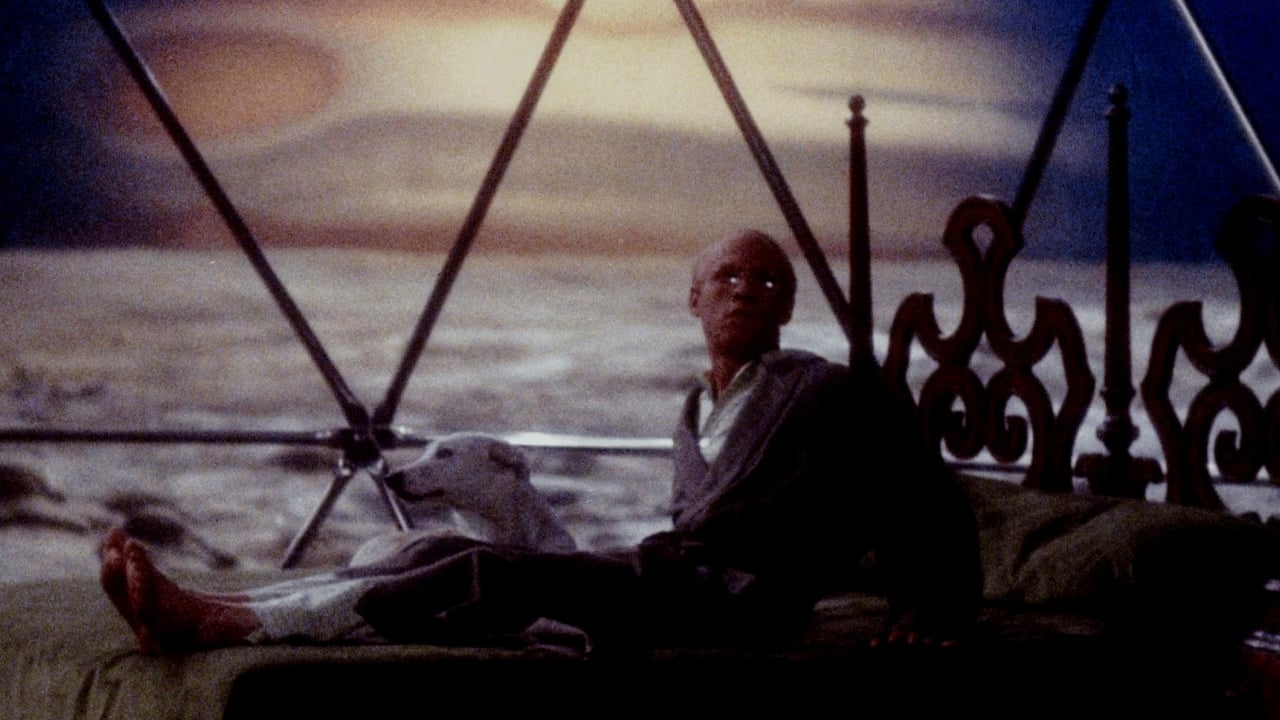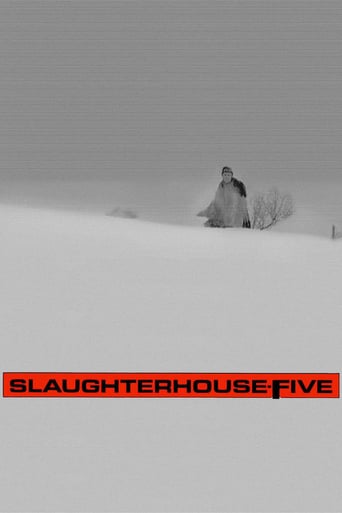

This is a must-see and one of the best documentaries - and films - of this year.
... View MoreClose shines in drama with strong language, adult themes.
... View MoreWhile it is a pity that the story wasn't told with more visual finesse, this is trivial compared to our real-world problems. It takes a good movie to put that into perspective.
... View MoreYes, absolutely, there is fun to be had, as well as many, many things to go boom, all amid an atmospheric urban jungle.
... View MoreIf you haven't seen the movie or read the book, put it on your list of to-do things right now. I read the book in 73, and then watched the movie on late night TV every chance I got. Lots of drama, comedy (very dark), very satiric, very sad, and very moving portrait of one Billy Pilgrim. Kurt Vonnegut at his absolute best !
... View MoreI couldn't track it down, unfortunately, but remember that Rolling Stone interviewed Vonnegut in the late 70's, and he stated that there were two movies that Hollywood had done that were better than their books: Gone with the Wind, and Slaughterhouse-Five. Kurt said Hill left out stuff that he should have left out of the book.I finally watched the film just yesterday, and agree that it was masterful at capturing the book. The time-traveling was exactly as Kurt described it. The characters were nailed. If only Hollywood could be this good when it interpreted books every time.If you're unfamiliar with the book and the film, I'd suggest reading first, then watching. It'll make the more obscure parts of the film clear, and you won't be disappointed by George Roy Hill.
... View MoreThe story is weak and strange. At some moments the protagonist (Billy) resides in a WW2 situation, at some points in time he lives a life in the present time (1972) with a wife and kids. For no reason the protagonist just knows that his plane is gonna blow up. During the disaster he manages to survive (not explained how... and it's not believable). Then his wife becomes hysteric and kills herself by accident, which also isn't very believable. Then in the end for some reason Billy gets transported to an alien planet which seems utterly ridiculous. It doesn't have a purpose at all... Then he suddenly tells someone that he sometimes 'timetravels' to the future and sees his own death. Which we are then allowed to see. Why wouldn't he escape his death if he know it was coming that minute? All very strange and unbelievable. But in the end it felt like i watched 3 movies. A movie about a ww2 POW. A movie about a family man in 1972, and a movie about some guy kidnapped by aliens. In no way these different parts of the movie are connected and it all just seems very strange. Besides that the acting is very mediocre at it's best. If I were you, i'd decide to just watch something else. It's not a very enjoyable movie, but also not the worst one i've watched so i'll 'reward' it with a 3.
... View More.Iconic author Kurt Vonnegut falls in a similar category as other well known authors who's novel gets adapted from movies and leaves critics wondering if they will keep up with what was written in their novels. Vonnegut's novels are provocative in the sense that which we utilize our cognitive state of mind as we challenge the madness behind mankind's ways of thinking. Surely not suited for audience members to go to theaters just to be entertained.Such experiments of trying to bring a qualitative novel to the big screen has been a victim of utter failure over the years (like "Slapstick" for example). But with the dedicated skill and bravery of competent director George Roy Hill, it is safe to say that "Slaughterhouse-Five" was given life to the screen without anyone feeling any sense of insult or humiliation and leaves its audience the freedom to draw their own conclusions of what was revealed here. Overall it was a pleasant compliment to Vonnegut's work and deserves all the praises it's been given to fans and critics. The characters in the movie were everything that I expected from the novel Theperformances were just as special in bringing the novel to life.Michael Sacks was really believable in his performance as Billy Pilgrimand Sharon Gans was convincing as his rotund and domineering wife,Valenica Pilgrim. Billy has become withdrawn with his time, shiftingback and forth of his life From the catastrophic events of World War IIto the generic struggles of married life, the film succeeds in shiftingthe radom events chronologically way up where we find Mr. Pilgrimlocated on the nearby planet of Tralfamadore along with a scantily cladMontana wildhack (Valerie Perrine). The accuracy speaks volumes towardsthe numerous supporting characters that was well complimented fromVonnegut's novel.Novice Vonnegut fanatics might be turned of by the unsettling narrative, but the detail that was taken into consideration might even flabbergast the average moviegoer after this equally poignant Vonnegut movie adaptation..
... View More